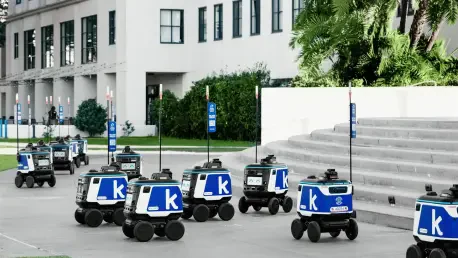
In an era where automation and efficiency define the success of technological advancements, developers are constantly seeking tools that can streamline complex tasks and elevate productivity to unprecedented levels. The Claude Agent SDK, a cutting-edge platform developed by Anthropic, emerges as a

In a world increasingly reliant on digital connectivity, artificial intelligence (AI) is fundamentally altering the foundation of technology systems, from sprawling networks to the data hubs that drive everyday applications. This seismic shift isn’t just about enhancing speed or cutting costs—it’s

What happens when a city's AI system mistakes a car backfiring for gunfire and sends armed response units into a peaceful neighborhood, creating unnecessary panic and potential danger? Such alarming possibilities are becoming reality as smart cities integrate artificial intelligence into critical

Introduction In an era where artificial intelligence shapes everything from daily conversations to critical decision-making, a hidden threat looms large over these powerful systems, threatening to undermine trust in technology. AI poisoning, a deliberate act of corrupting AI models with malicious

Introducing Refashion: A Game-Changer for Sustainable Fashion The fashion industry faces a staggering environmental crisis, with an estimated 92 million tons of textile waste generated annually from discarded clothing, much of which is driven by the relentless pace of fast fashion. Amid this

I'm thrilled to sit down with Laurent Giraid, a leading technologist in the realm of artificial intelligence. With his deep expertise in machine learning and natural language processing, Laurent has been at the forefront of innovative approaches to enhance AI capabilities, particularly in